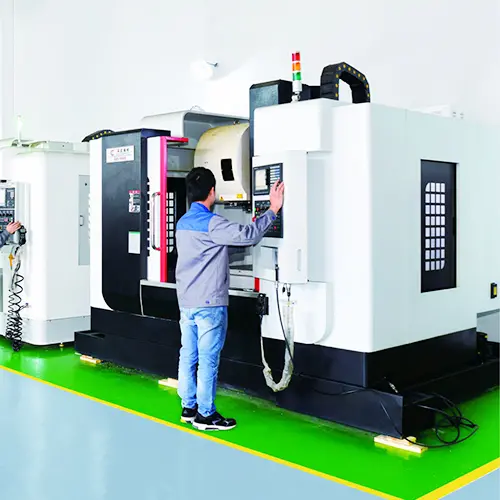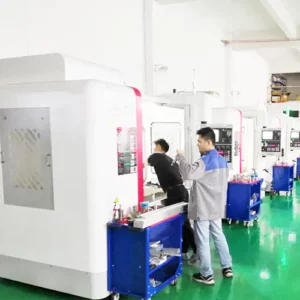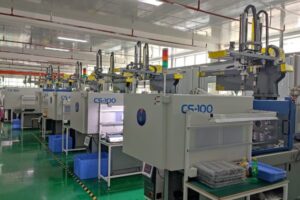Home » How to Choose the Right IML Robot Manufacturer

Choosing the right IML robot manufacturer is essential for any company looking to integrate in-mold labeling automation into its production processes. An IML robot manufacturer designs and supplies robotic systems that insert labels directly into molded products, streamlining production and improving accuracy. Selecting the right manufacturer ensures operational efficiency, reduces errors, and maximizes the benefits of automation. Understanding the factors that define a reliable manufacturer helps decision-makers make informed choices, avoid unnecessary costs, and implement automation solutions effectively.

The reputation of an IML robot manufacturer is a strong indicator of reliability and quality. Established manufacturers with years of experience have typically refined their technologies and have proven solutions deployed in various production environments. Checking references, case studies, or client feedback can provide valuable insights into the manufacturer’s reliability.
Understanding the technical capabilities of an IML robot manufacturer is crucial to ensure compatibility with your production requirements.
High-quality IML robots can operate efficiently to meet production demands. While exact throughput varies by product and robot model, selecting a manufacturer that provides clear performance metrics helps in planning production schedules effectively.
Different robots have varying arm reaches and load capacities. Evaluating the compatibility of a robot’s mechanical design with your molding machines ensures smooth integration without operational bottlenecks.
Manufacturers often provide flexible gripper designs and interchangeable end-effectors, enabling robots to handle different product shapes without extensive modifications.
The accuracy of label placement is critical for product quality. Reputable IML robot manufacturers design robots that maintain consistent precision, ensuring uniform labeling across production batches.
Integrated vision systems or sensors are often used to enhance alignment and minimize errors, which is particularly important for high-volume or premium packaging applications.
A competent IML robot manufacturer offers robots that can integrate seamlessly with existing systems and adapt to production changes.
Advanced manufacturers provide control software compatible with common factory systems. This allows for easy operation, monitoring, and troubleshooting without complex programming. User-friendly interfaces and customizable parameters also simplify operator training and workflow adjustments.
Some manufacturers offer modular or adjustable robots, making it easier to adapt to different product types or production layouts. Flexible design reduces downtime when changing molds or labels and enhances overall production efficiency. Modular systems also make future expansion more cost-effective, allowing factories to scale automation gradually without replacing entire setups.

Support services from an IML robot manufacturer are essential for smooth operation. Manufacturers should provide guidance on installation, training for operators, and access to technical support for troubleshooting. Effective support ensures that production issues are resolved quickly, minimizing downtime.
Some manufacturers even offer remote monitoring tools or virtual assistance to provide real-time troubleshooting for global clients.
Reliable manufacturers offer maintenance guidance and readily available spare parts. Regular maintenance and easy access to components keep robots functioning efficiently and extend their operational lifespan.
Preventive maintenance programs suggested by manufacturers help reduce unexpected downtime and ensure consistent production output.
Clear manuals, video tutorials, or online resources provided by the manufacturer help operators understand robot functions and safety protocols.
Comprehensive documentation ensures that the workforce can manage robots confidently and safely. Providing multilingual support in manuals or software interfaces is also a valuable feature for international operations.
Modern IML robot manufacturers are increasingly offering collaborative robots that can work safely alongside human operators. These robots allow more flexible factory layouts and reduce the need for extensive safety barriers. Their use is particularly beneficial in smaller production facilities or when frequent product changes occur.
Many manufacturers focus on energy-efficient designs to reduce operational costs and environmental impact. Using advanced motors and control systems, robots can perform effectively with lower energy requirements. This is becoming increasingly important as factories aim to meet sustainability targets.
Some IML robots come equipped with connectivity features that allow monitoring and data collection. This facilitates predictive maintenance, operational analytics, and process optimization, helping factories maintain consistent performance and minimize disruptions. Smart connectivity also enables integration with Industry 4.0 initiatives, making production lines more intelligent and responsive.
Selecting the right IML robot manufacturer involves evaluating technical capabilities, support services, cost efficiency, and adaptability to future trends. Experienced manufacturers with flexible, precise, and well-supported robotic systems offer the best opportunities to enhance production processes.
Considering factors such as ease of integration, automation capabilities, and ongoing support helps ensure that the chosen manufacturer aligns with production goals. By keeping these considerations in mind and understanding the latest industry developments, factories can make informed decisions that maximize the benefits of in-mold labeling automation while maintaining high operational standards across various product lines.
